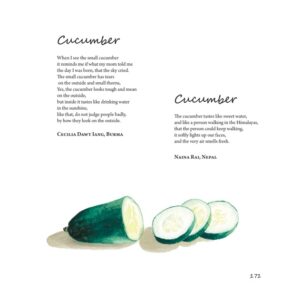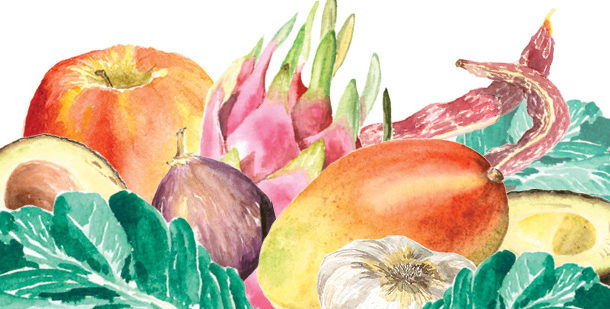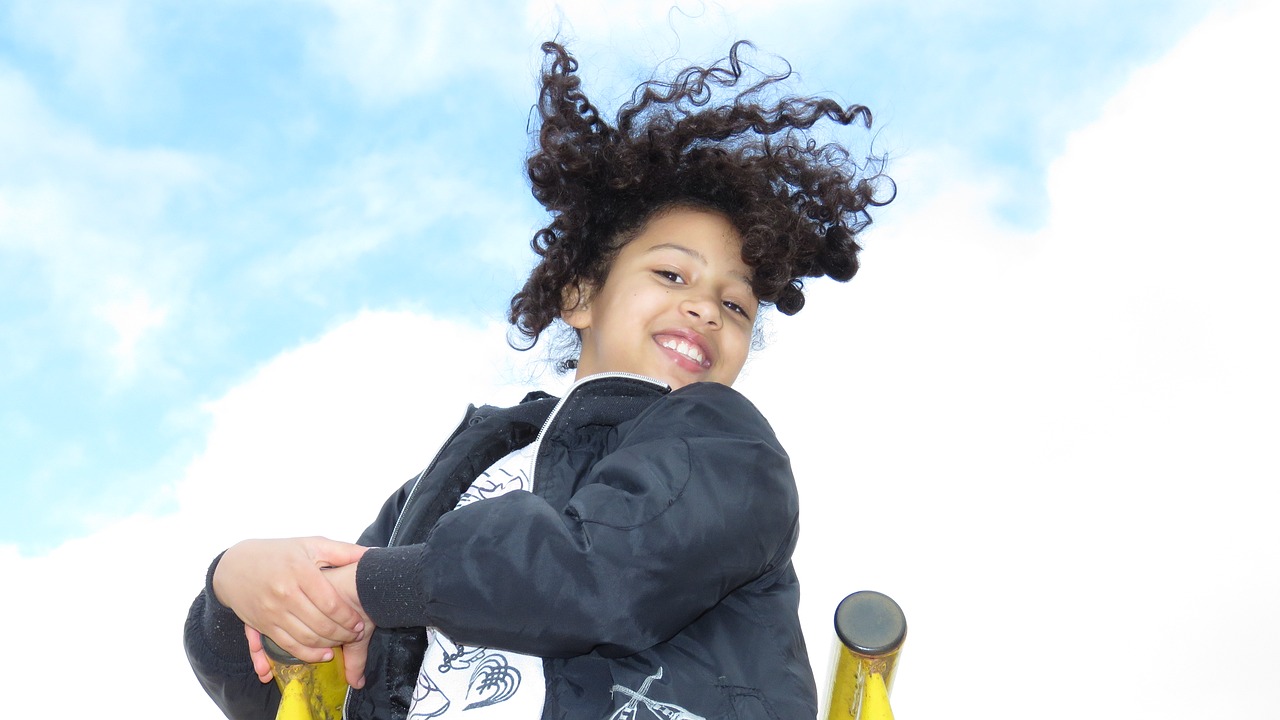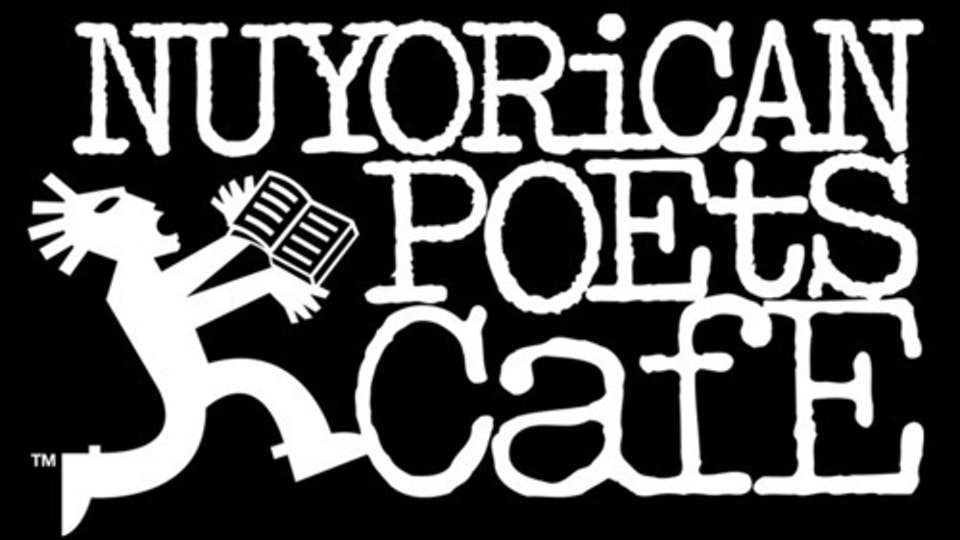Poets and writers who work as teaching artists understand that establishing a space where mutual regard and a sense of belonging can flourish is of utmost importance. The creative spark and humanizing impulse we find within literature and language is our medium for generating such an atmosphere, where all feel honored and welcomed.
But this past year we have witnessed a widespread increase in the use of language for an opposite purpose—to marginalize and disempower by using fear, propaganda, and vocabularies that dehumanize to target anyone labeled as different.
A number of social justice and anti-bias groups have recently published well-documented statistics about the rise of anti-immigrant sentiment, hate speech, and bullying in the months leading up to the presidential election and its aftermath. As a teaching artist working with young refugees and immigrants, I am particularly moved to speak out against these grossly inaccurate stereotypes.
For the past six years I have had the honor of co-directing and facilitating Stories of Arrival: Youth Voices Poetry Project at Foster High School in Tukwila, Washington, one of the most language diverse high schools in the country. Stories of Arrival works with high school-aged refugees and immigrants at the school and takes place in the English language learner (ELL) classes of my co-director, Carrie Stradley.
Given the current political climate, we believe it is more important than ever to ensure that our students’ voices reach far beyond the classroom, trusting that their stories will broaden others’ understanding of the dignity and strength with which they navigate the struggles of forced migration and immigration. Too many of our students have been falsely judged based on their accents, their appearance, and their unfamiliarity with American culture and the English language. In spite of this, they are determined to overcome their considerable challenges in order to acquire an education and make a better life for themselves in the world. The poetry they create with us is a poetry of resilience and hope.
Given the current political climate, we believe it is more important than ever to ensure that our students’ voices reach far beyond the classroom, trusting that their stories will broaden others’ understanding of the dignity and strength with which they navigate the struggles of forced migration and immigration.

This is wonderfully evident in our most recent project, centered around the food, gardens, and meal customs of the places our students have had to leave behind. In addition to the trauma and loss of opportunity they suffered when they fled their homelands, many of our students experienced the more subtle losses of being forced to abandon familiar seasonal rhythms of places where food was grown in small, local gardens and farms, and where culinary and mealtime traditions were deeply established. They miss the familiar scents and sounds of a home kitchen and the native fruits, vegetables, grains, and spices that comprised their local cuisine.
Our goal was to celebrate our students’ culinary heritage by asking them to write about the foods and customs that sustain and nourish them, and to bring these stories to the wider community as a way of fostering mutual understanding across cultures.
To broaden our idea, the Stories of Arrival project partnered with Project Feast, a Tukwila nonprofit located close to the school. Project Feast’s mission is to “transform the lives of refugee and immigrant women by providing pathways to sustainable employment in the local food industry and to enrich communities through exploring ethnic culture and cuisine.” Our collaboration allowed us to create intergenerational connections between our students and Project Feast participants and to demonstrate the remarkable power of food and of poetry to reach across borders and boundaries. The collaboration centered on the theme of food as it speaks to family, culture, and community, as well as to hunger, scarcity, and migration. We welcomed several Project Feast cooks and staff members to our classroom, and in turn we took a field trip to Project Feast and conducted interviews with participants, all refugees from a number of different countries.
At the end of the project, we compiled the students’ work into a beautifully illustrated book of recipes, interviews, and food-themed poetry. The book, Our Table of Memories: Food & Poetry of Spirit, Homeland and Tradition, is dedicated to the possibility of a world where no child is hungry. The project culminated with a community reading combined with a celebration of cultural traditions in Tukwila’s highly diverse community. The event, which garnered an audience of over two hundred, was catered by the refugee women of Project Feast, featuring what the students called “seriously amazing” food from their home countries.
We began our work with the students with a simple writing prompt: asking each student to write the name of the fruit and/or vegetable they most loved and missed from their homeland. Then we invited a local watercolor artist to visit our classes to collaborate with the students in creating an image of the food they selected. We followed the artist’s visit by bringing in as many of these fruits and vegetables as we could procure, so that students could experience their texture, color, scent, shape, and flavor before the writing began. Simple praise poems about these fruits and vegetables from homeland gardens, farms, fields, and orchards gave way as the year went on to deeper explorations, with poems detailing beloved kitchens, cooking over open fires, memories of family members left behind and loved ones who were no longer alive.
Malaak A., one of our students whose late father was from Yemen and mother from Somalia, wrote in the introduction to her poem titled “My Father’s Kitchen”:
I wrote this poem because my heart is so connected with my father. My father was Yemeni, and he taught me how to love my own culture’s food and also how food tastes different when we make it with love. We can also taste the struggle in our food and the many thousands of stories behind it. In the world that is strife-torn with war we can change with poems because poems are not only lines, they are the way to reach all the peoples’ hearts.
The poetry that emerged from this food-themed project speaks volumes about the power of food and poetry to trigger deeply personal memories. Most of us have experienced coming across a taste that brings us back to childhood, or a scent that puts us in our grandmother’s kitchen. We celebrate with food, we comfort ourselves with food. In times of loss we provide sustenance for those who are in deep sorrow. And of course there is that most universal symbol of peace and well-being—that there is a place for everyone at the table—that we all break bread together.
Simple praise poems about these fruits and vegetables from homeland gardens, farms, fields, and orchards gave way as the year went on to deeper explorations, with poems detailing beloved kitchens, cooking over open fires, memories of family members left behind and loved ones who were no longer alive.

But, as we know, precious food traditions can be devalued, whether in a school cafeteria, a detention center for undocumented immigrants, or any situation in which our sense of comfort and belonging are eroded. Certainly this happens when we are deprived of eating or growing the food that is part of our identity. A number of poems written during the project reflect the struggles of adjusting to foods that were radically new and different than the foods of home countries. This was especially true of the Bhutanese, Nepalese, and Burmese refugees, and of Vietnamese immigrants because dairy is not a food that appears in their traditional diets.
The novel in verse, Inside Out and Back Again, by Thanhha Lai mirrors what it is like for a refugee or immigrant when presented with unfamiliar food that seems unappealing and strange. Many of Lai’s poems speak to how deeply food from a homeland can be missed. Her verses are based on her childhood experiences leaving Vietnam because of the war and arriving in the US. She also writes about food scarcity and deprivation. Her work, sometimes somber and other times humorous, inspired our students to write of their first experiences eating American food, as in this excerpt from a poem by Smile K., a young Burmese refugee, who wrote about his first time eating pizza.
The New Pizza
The first everything, in America,
different everything, new everything,
the first day of school in America,
it was lunch time,
I was so scared, I didn’t know what to do.I picked up my food, it was hot!
I was confused: I never saw a hot bread,
I took one bite, I froze!
I gagged, but I saw the lunch teacher looking at me,
You don’t like the food? We made it, and you don’t like it?
so I swallowed slowly, I cried inside, deeply,
not because of the food, but because in that moment
I wished I could just fly back to my country.
For the newly arrived immigrant or refugee, there is a strong sense of wanting to belong while still holding on to and honoring family and cultural traditions. A poem from James M., also from Burma, speaks to this.
Disapprovingly
In Burma
growing up
we didn’t use forks or spoons,
before eating,
my dad, Zua Pa, washed our hands
with love and care,
we waited for them to dry,
in order to devour our food with our hands
white rice, giving us energy.In Tukwila,
when I tried to devour my food
with my hands
that I washed myself,
Americans stared at me
disapprovingly
in the school cafeteria.At home, though,
I still use my hands
it is our family’s culture, laughing,
not feeling embarrassed.
Writing about the food of their cultures transported the students back to the places they were from; recalling minute details of sounds, spices, flavors, and colors combined to metaphorically bring them home. Poems about remembered kitchens poured forth even from our most reluctant writers. Another poem by James speaks beautifully to the connections between food, home, and the sensate details of poetry.
My Mother’s Kitchen
When my mom cooks, it smells of sweet cooking oil,
there is the sound of stirring a big pot,
the sound of vegetables sizzling into bowls
and scents of beautiful oil, the color of sunflowers,
there is the waiting to taste her cooking,
there is the grinding of chili,
and outside there are pigs rolling in the earth
chickens waiting,
the sweetness of snowy rice,
I picture our colorful house,
the brownness of the soil,
the wonder of the wind.
Rodas N. created a similar poem giving tribute to the Ethiopian tradition of “gursha,” which involves feeding others gathered at the table before taking your own first bite. She tells us how memories of food bring her back to her childhood in Ethiopia.
I Remember
I remember the taste of injera in Ethiopia
soft, hot and delicious,
when I see injera it consumes my mind.
“Gursha” is how we feed each other in my country
we offer food two times,
one bite for respect,
and another bite for love.I remember the taste of my grandmother’s chicken stew
simmering, with red berbere and yellow turmeric
these foods take me back
to the highlands of Ethiopia
to the beauty of the green mountains,
white rivers and rich valleys.And I remember the smell of the roasted earthy and rich
birthplace of coffee.
I remember all of this and feel safe,
and with these memories, my childhood quickly returns
to injera and coffee.
This excerpt from Nathaly Rosa M.’s poem, which she wrote in Spanish and English, honors her indigenous roots. It exemplifies the many poems that expressed a respect for the earth and for the rich history of sharing traditional foods.
Where Food Is an Art
I am from a place where
The food is an art and every bite
Is a spicy piece of our culture,
With flavors that our indigenous ancestors gave us.
Our food is not only food
It’s a way to communicate our feelings
It’s a way to talk with our family
It’s our history, our identity.But now everything is not the same,
The tortillas smell different, the salsa is not spicy
Our special gifts are mixed with chemicals
Our food enclosed in a plastic prison.Our kitchen table may be in another country
And the people who ate with us
Are no longer here,
But we will return
In the morning lights
And the darkness nights
To conserve our special secrets.
Not only did the students have much to say about their respective cultures as related to food, they also spoke from experience about the lack of food. Through this project, I have become sharply aware of hunger as a complex and disturbing consequence of war, displacement, poverty, environmental degradation, and life in refugee camps.
Since many of the students in the project arrive in the US having experienced food scarcity, we were pleased to discover a second novel in verse about this subject. Angela Davis Pinkney’s The Red Pencil, about a young Sudanese girl whose village is destroyed in war and who lives in a refugee camp, helped our students create their own poetry about hunger and scarcity. Kum Thawng H., from Burma, wrote of hunger in stark, bare-bones language.
No Food
I picture my grey village, Kyar Inn, Kalay, Burma
The grey of soil and grass
I breathe deep and deep
I smell sadness
The crying
The shouting for help
Because of no food
No food, and without food,
We are not given peace.
Another poem about hunger was written by Abdirahman A., from Somalia, who lived with his mother in the Ifo refugee camp. Ifo is one of three camps that make up Dadaab Refugee camp in Kenya, the largest refugee camp in the world. Established 20 years ago to house up to 90,000 people escaping violence and civil war in Somalia, there are now more than 350,000 people crowded into the camp. Abdirahman’s mother speaks no English, but she came to the classroom several times, standing at the door with the gift of a warm cake for all of us, and Somali coffee for Carrie Stradley and me.
The Food of My Country
When my mother cooks, it smells of Somalia,
with memories of tea pouring in a cup,
memories of splashing oil and sizzling meat,
I picture the blue skies like our Somali flag,
I picture the deep green forests with mangoes
that are not yet ripe.Yet, I taste the struggle
that my family has gone through,
struggle of food rationing
and never enough to eat,
struggle for clothing,
not enough to keep us warm,
struggle for houses, with leaking roofs,Then the Ifo refugee camp, better housing
but still not enough food, and strange to our taste,
a taste of bitterness,In America we still cook our Somali food,
it travels with us wherever we go,
the taste of home.
From the outset of the project through the culminating celebration, our students expressed how the tastes of home were intricately connected to the stories they had to tell. At the close of each year we use the proceeds of our anthology sales to award college scholarships to several students who submit a winning essay. We ask them to reflect on how writing poems about their homelands and traditions helps them understand what other young people who come to the US as refugees or immigrants experience. We also request that they comment specifically on how poetry serves to connect people. Carrie and I agreed that among all of the excellent essays, Julianna M., from Burma, spoke most powerfully to the themes of the poetry project. She wrote in part:
I’m not the only person who came to US to have a better education. Thousands like me left their country because of war and not having enough food to eat… When we write poems it brings back a thousand pieces of memories…. Poetry connects people by sharing feelings. One of the biggest things I learned was that by turning my feeling into poems, I was relieved because I had been holding onto the pain inside me too long and I got to share it with the world… When I looked at my classmates I realized that we are similar—how we eat limes and how our traditional foods taste the same, how we used to get the water from rivers, how we have farms far away from our house and we sleep there, and feed our animals.
The students’ words about the project show their compassion, their fierce determination for education, and their strength in the face of struggles and challenges. The writing they did with the project granted them the confidence and recognition that their experience matters to a larger, welcoming community. In a time when fearmongering against immigrants and refugees is given so much space in public discourse, this project works to tell a different story. These courageous young voices reaffirm the very things that can nurture all of us—caring for the earth, honoring home gardens and small farms, and participating in actions large and small that serve to create peace among us, treasuring our roots while transcending ethnicities and borders.
The Stories of Arrival Project is a Poetry Partner Project of the Institute for Poetic Medicine in Palo Alto, Ca, and also partners with Seattle’s Jack Straw Cultural Center. King County 4 Culture, and the Tukwila School District bring additional project support. Our Table of Memories is available from Chatwin Books or from Amazon. You can listen to our project poets here.
Illustrations by Morgan Wright
Bibliography of Resource Material and Poems Used as Prompts:
Alexander, Elizabeth. Body of Life, Sylmar, CA: Tia Chucha Press, 1996.
Animashaun, Abayomi, editor. Others Will Enter the Gates: Immigrant Poets on
Poetry, Influences, and Writing in America. Black Lawrence Press, 2015.
Christensen, Linda. Teaching for Joy and Justice: Re-Imagining the
Language Arts Classroom. Milwaukee, WI: Rethinking Schools, 2009.
Community Alliance for Global Justice Our Food, Our Right: Recipes for Global
Justice. Seattle, WA: Community Alliance for Global Justice, 2012.
Doshi, Tishani Everything Begins Elsewhere. Port Townsend, WA: Copper
Canyon Press, 2013. “Immigrant’s Song.”
Engle, Margarita. Enchanted Air: Two Cultures, Two Wings: A Memoir. NY:
Atheneum Books for Young Readers, 2015. “My Great Grandmother’s Garden,” “Tropical Windows.”
Keenan, Deborah and Lloyd, Roseann, editors. Looking for Home: Women
Writing About Exile. Minneapolis, MN: Milkweed Editions, 1990.
Klindienst, Patricia. The Earth Knows My Name: Food, Culture and
Sustainability in the Gardens of Ethnic Americans. Boston, MA: Beacon
Press, 2006.
Knisley, Lucy. Relish: My Life in the Kitchen. NY: First Second, 2013.
Lai, Thanhha. Inside Out and Back Again. NY: Harper, 2011. “American Chicken,”
“Birthday,” “But Not Bad, “Papaya Tree,” “Not the Same,” “Quiet Decision,” “Rations,” “S-l-o-w-l-y,” “Twisting, Twisting,” “Wet and Crying.”
Murray, Joan. Looking for the Parade, New York, NY: W.W. Norton, 1999.
“Her Head.”
Nabhan, Gary Paul. Cumin, Camels and Caravans: A Spice Odyssey.
Berkeley, CA: University of CA Press, 2014.
Pinkney, Andrea Davis. Evans, Shane W., illustrator. The Red Pencil. NY
Boston: Little Brown and Company, 2014. “Dawn,” “Deepest Self,” “Hungry,” “The Water Giver,”
Soto, Gary. Neighborhood Odes. San Diego: Harcourt Brace Jovanovich, 1992.
“Ode to La Tortilla.”
Stowell, Phyllis and Foster, Jeanne, editors. Appetite: Food As Metaphor: An
Anthology of Women Poets. Rochester, NY: Boa Editions Limited, 2002.
“Plantings,” by Catalina Cariaga, Filipino. Young, Kevin, editor. The Hungry Ear: Poems of Food and Drink. NY:
Bloomsbury, 2012.
Merna Ann Hecht, formerly a teaching artist for the Seattle Arts and Lectures Writers in the Schools program, founded and co-directs the Stories of Arrival Poetry Project. She also teaches humanities and social justice courses at the University of Washington, Tacoma. She received a National Storytelling Network Brimstone Award for Applied Storytelling for her work at BRIDGES: A Center for Grieving Children in Tacoma, Washington, and a 2016 King County 4 Culture Individual Artist grant for the forthcoming year of the Stories of Arrival project. A published poet and essayist, Merna brings her lifelong love for growing and preparing food into all of her work.



